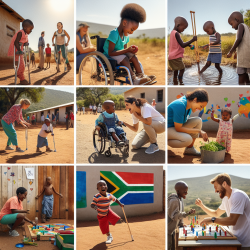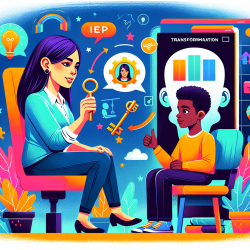Narrative production is a critical skill that significantly impacts children's language development and literacy outcomes. A recent study, "Narrative Production in Children With Autism Spectrum Disorder and Specific Language Impairment," provides valuable insights into the narrative abilities of children with Autism Spectrum Disorder (ASD) and Specific Language Impairment (SLI). This blog will distill the key findings from this research and offer practical strategies for practitioners to enhance their skills and improve outcomes for children.
Key Findings from the Research
The study examined three age-matched groups of 6- to 10-year-old children: those with ASD, those with SLI, and typically developing (TD) peers. The children produced two stories from pictures, and the analyses focused on productivity, content, and form. Here are the critical findings:
- Children with ASD were outperformed by their peers with SLI in referencing, relevant content, and mental state language, which rely heavily on perspective-taking abilities.
- The ASD group produced higher rates of grammatical errors than the SLI group, though both groups showed no significant differences in syntactic measures.
- Both clinical groups performed below their age-matched TD peers for most measures, indicating a need for targeted intervention.
Implications for Practitioners
Based on these findings, here are some strategies that practitioners can implement to enhance narrative skills in children with ASD and SLI:
1. Focus on Perspective-Taking and Mental State Language
Children with ASD showed significant difficulties in using mental state language. Practitioners should:
- Incorporate activities that encourage children to think about and describe the thoughts and feelings of characters in stories.
- Use social stories and role-playing exercises to help children understand different perspectives.
2. Improve Referencing Skills
Clear referencing is crucial for narrative coherence. Practitioners can:
- Teach children to use specific names and descriptions when introducing characters and objects.
- Practice the use of pronouns and definite articles in context to reduce ambiguity.
3. Address Grammatical Accuracy
Given the higher rates of grammatical errors in children with ASD, targeted grammar interventions are essential. Strategies include:
- Explicitly teaching grammatical rules and providing plenty of practice opportunities.
- Using visual aids and sentence-building activities to reinforce correct grammar usage.
4. Utilize Narrative Production Tasks in Assessments
Narrative tasks can reveal strengths and weaknesses not evident in standardized tests. Practitioners should:
- Incorporate narrative production tasks into regular assessments to obtain a comprehensive language profile.
- Use the information from these tasks to set specific, targeted intervention goals.
Encouraging Further Research
While this study provides valuable insights, it also highlights the need for further research in several areas:
- Investigating the impact of different types of narrative interventions on children with ASD and SLI.
- Exploring the relationship between structural language skills and social-cognitive abilities in narrative production.
- Examining the long-term effects of narrative interventions on language and literacy outcomes.
To read the original research paper, please follow this link:
Narrative Production in Children With Autism Spectrum Disorder and Specific Language Impairment.










